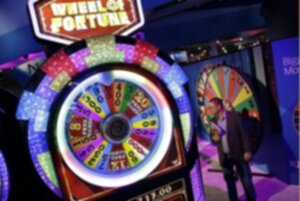American gamblers know more that those in other countries and bet for fun rather than profit, an international report into gambling has revealed.
While the US is famed for the dazzling lights of Las Vegas and Atlantic City, for poker tournaments and busy casino floors, it is behind the rest of the world when it comes to online betting. Research from YouGov has provided a detailed assessment of attitudes towards gambling in the country that both players and businesses can use in years to come to understand the progress of the industry.
The 2021 International Gambling Report has found that more Americans prefer to bet online than offline, and that sports betting and lotteries are by far the most popular types of wager. However, there is also a strong hangover from the golden days of Vegas, with a quarter of all Americans having played a slot machine – higher than practically any country in the world.
America, which is legalizing gambling on a state-by-state basis, still has some catching up to do. As the report explains, the “piecemeal progress of state-by-state legislation in the US with less than 20 states so far online either sports betting or online gaming … means it is not surprising that the incidence of online gambling in the US is fully ten percentage points lower than the global average (7% versus 17%)”.
Here, we take a further look at what the report has found, and what predictions can be made for the US gambling industry in the future…
US Gambling Report Findings
The YouGov report builds on existing data and interviews 45,000 people every month from around the world, to create a picture of how the global gambling industry currently looks. There was a particular focus on the US and how its growing online industry is progressing. Here are some of the findings:
US offline gambling Mega casino resorts in Vegas, Atlantic City and elsewhere still draw millions of tourists every year and that’s why the US remains the most popular destination for offline gambling. In fact, 18% of those surveyed in the US have bet in a highstreet or resort casino, compared to 16% globally. The online betting industry is booming but so is the offline one!
Online doesn’t cannibalize offline It is a myth that online betting on casino games and sports leads to a cannibalization of offline products. The survey found that omni-channel customers around the world stands at 20%, while in the US it’s 35%. Fears that COVID-19 has pushed people away from highstreet casinos for good have already been alleviated by the strong financial results of Caesars Entertainment, MGM Resorts International and Penn National Gaming.
Americans more knowledgeable It was also found that Americans deem themselves more knowledgeable about gambling compared to the rest of the world. Around 46% of Americans say they have a ‘knowledgeable’ or ‘sophisticated’ understanding of gambling, compared to 36% across other countries. This knowledge is likely to come from a large media platform that provides detailed analysis of casino, sports and lottery betting. What’s more, Hollywood plays a big role in normalizing the casino experience even to those who have never been to a casino.
Most do it for fun, not to win big Entertainment is the biggest factor for Americans betting, ratter than dreams of a life-changing win. Indeed, 48% of US gamblers say betting is primarily a fun thing to do, while 25% believe it enhances their experience. Meanwhile, almost a third of the rest of the world bet because they fantasize about winning. This grounding in reality helps resorts cater for US gamblers by offering other forms of entertainment outside of the casino experience, such as live music shows, sports events and high-end restaurants.
Anti-government interference Americans generally don’t want the government to interfere in the gambling sector. As the report says, “fewer people believe the government should do more to protect gamblers (26%), much less than is the case globally (44%). Even in Canada, which is currently also restricted but soon to open up, only 38% agree but just 14% say rules around gambling are too tight”. Interestingly, almost a quarter of Americans in states where gambling is illegal believe the regulations are too tight, which suggests there is an appetite for relaxed legislation.
Fewer women bet Compared to the global average, American women fall behind in terms of the percentage of the population regularly betting. Female participation in the US is 31%, whereas in Great Britain it is 44%. Notably, female participation in gambling is skewed towards lottery and bingo, rather than casino or sportsbooks. US casinos know the importance of having female customers and are likely to use this information to provide better services for their clientele in the future.





